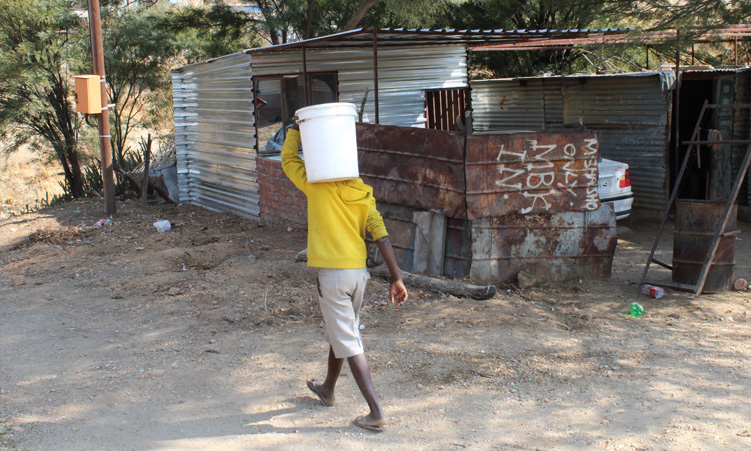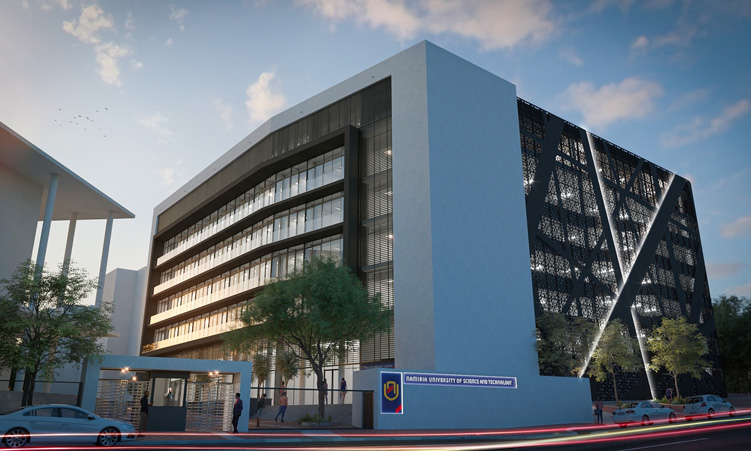A local independent mining consultant says Namibia is endowed with top quality minerals, but the government has no control over the mining and extraction of these minerals, with its role limited to regulation.
Zenzi Awases was one of the two panellists in a discussion looking at how Namibia could increase revenue and benefits from its natural resources at a two-day alternative mining indaba, which ended in Windhoek yesterday.
The indaba focused on the general concern surrounding NamibIa being rich in natural resources and with a small population but still failing to provide quality and dignified livelihoods to its citizens.
Awases said there are about 20 commercial mines and the mining sector is the backbone of the Namibian economy, however, despite the fact that the country is endowed with mineral resources such as gold, rough diamonds and copper of high purity, the government is not the direct owner of mining and extractive companies.
“We can proudly say we have all the minerals and our safety standards in the mining industry are of top class. We are blessed and should give quality and dignified livelihoods to all Namibians.”
She said in terms of the Mineral Resources Act, conducting and management of Namibia’s minerals is entrusted to the state, however, the state’s role is limited to regulation rather than owning mines.
Awases said if the government has direct ownership in mines, more revenue can be generated for the state which can be used to fund public services, economic growth and job creation for the citizens.
However, Awases said this would require transparency and management ability.
She said such a move may also have some disadvantages, such as bureaucracy, slowness in decision-making, lack of competition in the mining industry, corruption and mismanagement.
Awases said stronger coordination is needed in the mining sector.
Chamber of Mines Namibia president Zebra Kasete said he is aware that communities in areas where mining and extraction activities are taking place do not get the desired benefits from mining companies, however, mining companies have also contributed immensely to the development of a number of towns in Namibia, especially after independence.
Such benefits, according to Kasete, can be seen at towns like Oranjemund, Karasburg, Tsumeb and Arandis, where mines built infrastructure like houses, railway lines and sport facilities.
He said at the moment, 95% of the Exploration Prospecting Licences (EPLs) are owned by Namibians, but it would appear that Namibia EPL holders have not yet developed the skills to raise funds
.
Kasete said there is nothing wrong with the idea of the government owning mines, but proper management of such mines needs to be put in place.
The objectives of the indaba, among others – was to assess and analyse the performance and inputs from the mining and extractive industry in Namibia with regard to profits and revenue and to interrogate why the rich mineral resources have not been used to significantly address the socio-economic development challenges in the country.
The indaba was held under the theme, ‘Increasing Benefits from Mining and Extractive Industries in Namibia to Leverage the Country’s Social Economic Development Challenges – Including Poverty, Unemployment and Inequality’. It was organised and hosted by the Social Economic Justice Unit of the Council of Churches in Namibia in collaboration with the Economic Justice Network of the Fellowship of Christian Councils in Southern Africa, with support of Norwegian Church Aid and Friedrich Ebert Foundation.
Stay informed with The Namibian – your source for credible journalism. Get in-depth reporting and opinions for
only N$85 a month. Invest in journalism, invest in democracy –
Subscribe Now!






